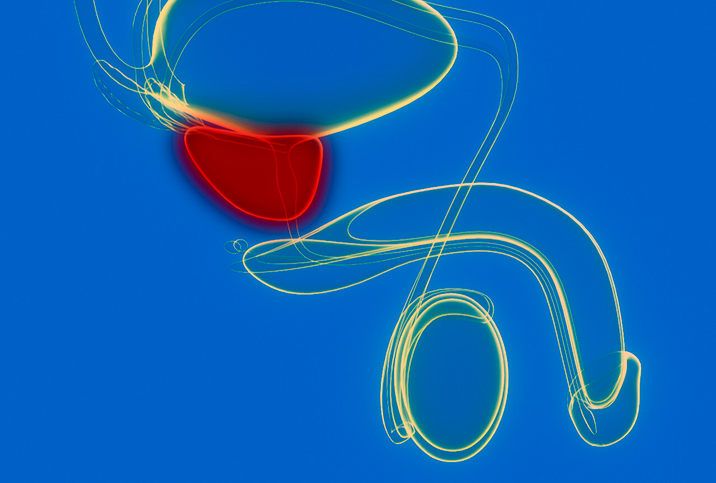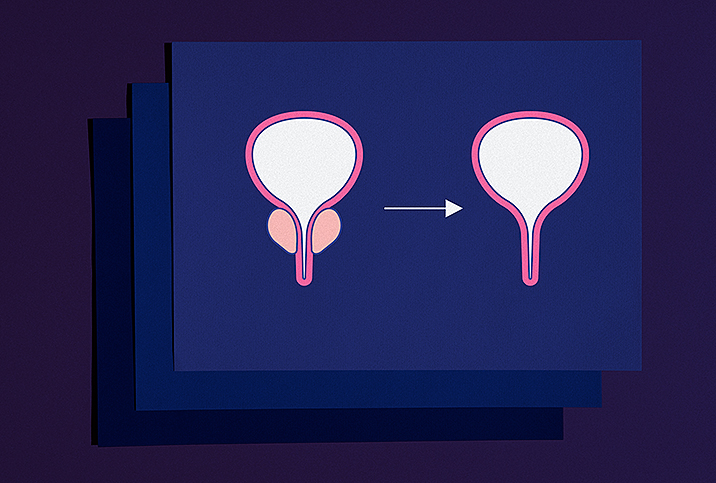How Is Prostate Cancer Treated?

If you or a loved one has been diagnosed with prostate cancer, a variety of treatment options are available to you.
Consulting with a doctor to come up with a treatment plan is a critical first step, because a medical expert can help you determine the best path forward based on the type of prostate cancer you have and the stage it’s in.
Find the right treatment
Your healthcare provider may prescribe one or more of the following treatments to help rid your body of prostate cancer.
Remove the cancer surgically
If the cancer hasn’t spread beyond the prostate gland, your doctor may recommend going forward with a radical prostatectomy. Depending on the case, the procedure may include removing:
- The entire prostate
- Surrounding infected tissue
- Infected lymph nodes
The radical prostatectomy can be done through traditional surgery or with a robot-assisted laparoscopic approach, which is minimally invasive.
Shrink and slow prostate cancer growth with hormone therapy
Hormone therapy, also known as androgen suppression therapy, aims to reduce the levels of male hormones in the body. While hormone therapy can’t cure prostate cancer on its own, it can stop these hormones from supporting the growth and spread of the disease.
Two of the most common types of hormone therapy include anti-androgens and orchiectomy.
Anti-androgens are drugs that connect to androgen receptors, making it more difficult for the male hormones to support tumor growth. Anti-androgens can be taken as pills or injections.
Orchiectomy is a procedure that involves the surgical removal of the testicles, which are responsible for producing testosterone, one of the body’s main sources of male hormones. This option is sometimes offered to patients in the advanced stages of prostate cancer or to those who wish to avoid long-term medical therapy.
Target the disease with chemotherapy and immunotherapy
Chemotherapy involves the use of medication, usually administered through pills or an IV, that helps shrink and kill cancerous cells.
Immunotherapy is a biological therapy designed to boost a patient’s own immune system to naturally fight the cancerous cells in the body.
Use radiation therapy for prostate cancer
During radiation therapy, beams of radiation are transmitted and focused on the prostate gland. This therapy is most effective on prostate cancer in its early stages and is often used in conjunction with hormone therapy.
Treat with alternative options
High-intensity focused ultrasound is a noninvasive treatment that involves focusing ultrasound energy to heat and destroy cancerous tissue. A doctor will conduct this treatment while using real-time images to guide him while the patient is under general anesthesia. Some patients, in consultation with their healthcare providers, opt for this treatment because it offers radiation-free treatment and does not require surgery.
Cryotherapy can potentially reduce prostate cancer by freezing the affected area. Typically, a doctor will recommend cryotherapy as a treatment if the prostate cancer has returned following the completion of radiation therapy. It is also sometimes available for men with low-risk, early-stage prostate cancer who cannot undergo surgery or radiation, according to the American Cancer Society.
Make the big decision
You’ll obviously want to involve your loved ones in any decision when you’re considering a treatment plan that’s best for your condition. Your primary doctor will be important as you search for a medical specialist, and it could be useful to consider seeking multiple opinions before deciding what path forward is best for you.

















